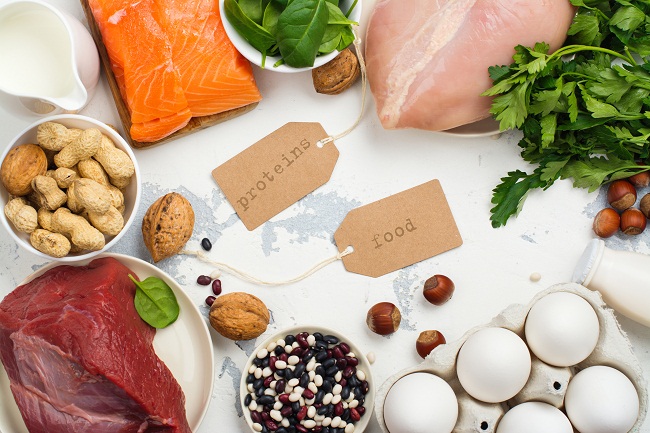Diabetes and Proteins
People who intend to lose weight often get into this trap –cutting down on carbohydrates altogether and opting for high protein foods. For these people, protein is a major source of nourishment and carbohydrates are mere add-ons. Though we do need copious amounts of protein for various functions of the body, people with diabetes should be careful while quantifying the amount of protein in their diabetes diet menu..
Either omitting or including proteins completely from a diabetic food list .can have serious complications. These might range from nutritional deficiencies to proteinuria (presence of protein in urine). For people with diabetes complications , regulating protein content is vital for the health of their kidneys.
What are proteins?
Proteins are major nutrients for the body and are made up of amino acids. Most of the muscles, tissues, bones, and skin are made of proteins. Many enzymes, hormones, and antibodies are made of proteins. They are vital for all functions of the body and help in building muscle mass, bone, and repair of tissues.
A major job of proteins is to repair and maintain all tissues and muscles of the body. They give us energy, help produce enzymes needed for digestion and other functions, and play a vital role in secretion of hormones. They assist in disease resistance and build immunity.
Sources of Protein in Diet
Proteins are available in: .
- Whole Grains.
- Millets.
- Lentils.
- Nuts.
- Beans.
- Soya beans.
- Seeds like Chia seeds.
- Fish and seafood.
- Red meat.
- Poultry.
- Eggs.
- Dairy products like milk, cheese and yogurt.
Depending upon dietary choices, people with diabetes can choose their protein sources. However one major question that troubles many is the amount of protein content required for a person.
Diabetes and Proteins – How much protein do we actually need?
We all know that high amount of calories from carbohydrates can be a risk factor for type 2 diabetes. However, it has also been proved that people who consume high amounts of animal protein are at a modest risk of getting type 2 diabetes .
When it comes to protein intake for people with diabetes, it all boils down to the health of kidneys. If kidneys are healthy, then people with diabetes can consume protein up to 20% of their total dietary intake per day.
The source of protein again depends other factors like risk of cardiovascular diseases, total cholesterol levels, triglyceride levels, amount of physical activity, and medications used. Also, the age of the person, his/her weight, and the age of diabetes plays a significant role in the energy requirements of a person.
The protein requirement for a person is calculated by multiplying the requirement per kilo with the standard weight of a person of that age group.
- Generally, adult men require 60 grams per day and women require 55 grams.
- In the case of the elderly, slightly lesser amounts are needed.
- For teenagers, the requirement is the same for men and women.
- For lactating mothers and pregnant women, the requirements are more than that needed for adult women.
- In case of people who have kidney disease (diabetic nephropathy), low-protein diet is preferred.
- People who undergo dialysis, need higher amounts of protein.











